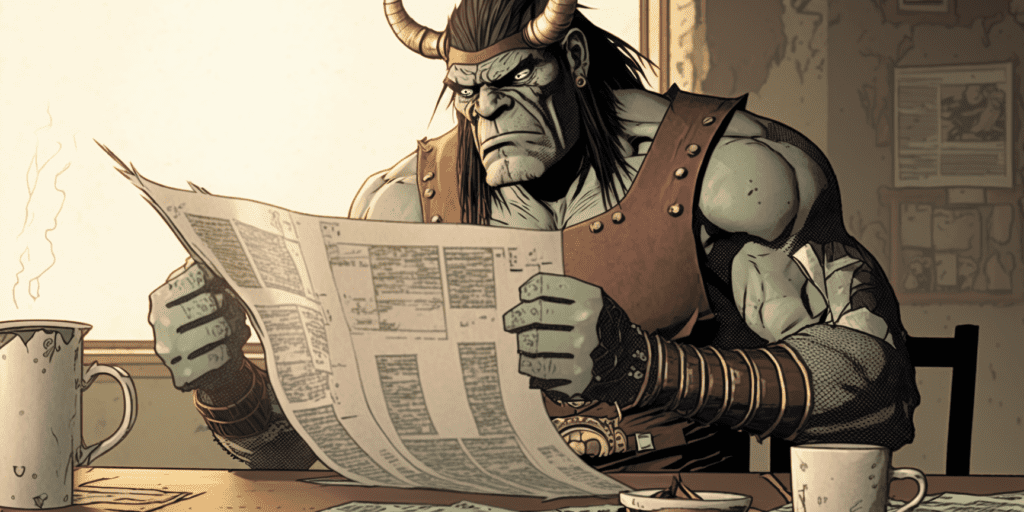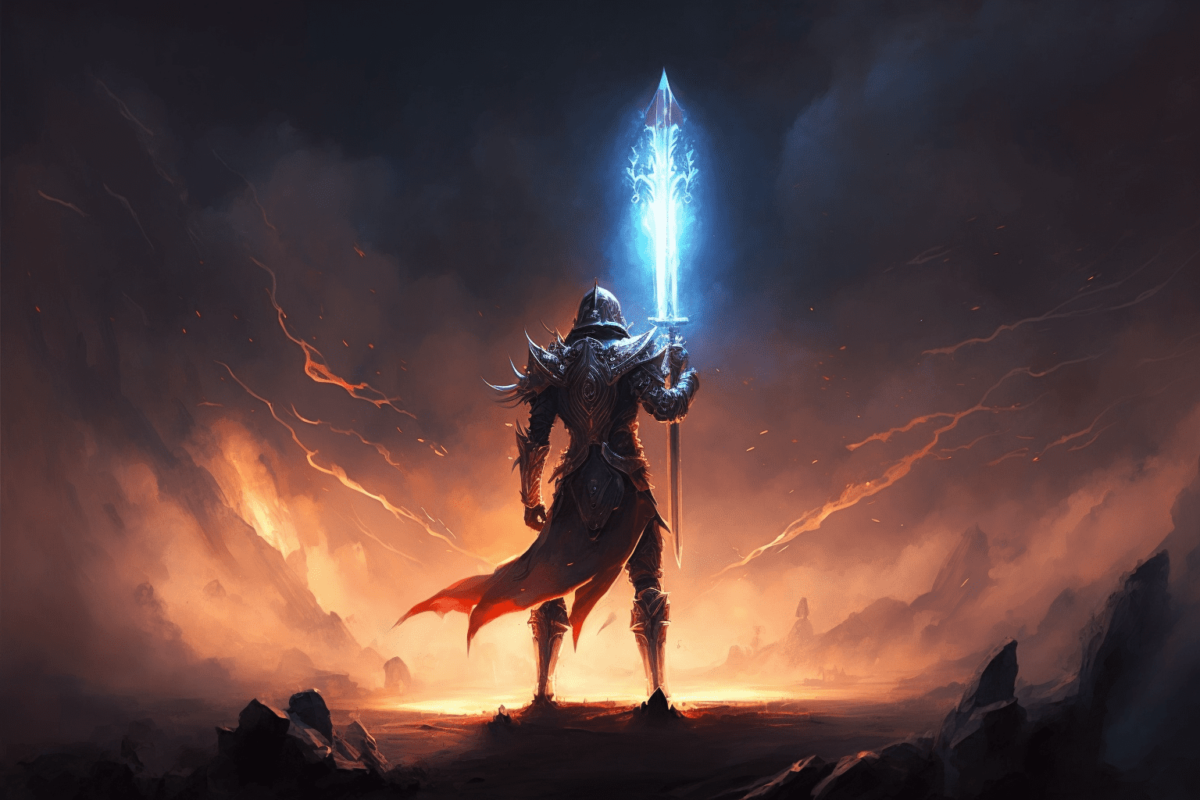Looting cool stuff is one of the highlights of playing any TTRPG. Dungeons and Dragons treats loot slightly differently from other similar TTRPGs.
For example, loot is rarer than in your typical TTRPG such as Pathfinder. The purpose of this is to make items feel more rewarding once they’re looted.
DnD has an attunement system for weapons as well, which is another thing that DnD does differently from other games. That’s the topic of this article. What is attunement in DnD?
Attunement is a way of making items more interesting while at the same time balancing them: some items have to be attuned to receive their bonuses. Once an item is attuned to a person, that person is the only one that can fully benefit from its effects. A lot of attunement items are either of Epic or Legendary quality, but some items of lesser quality have to be attuned as well.
The concept of attunement is an interesting concept, and fairly simple once you get your head around it. Let’s continue to explore the various details of attunement in DnD.
What is Attunement?

Attuning an item in DnD means that your character forms a bond with it. Attunable items are magic, and they hold secrets that you need to suss out to properly use their effects.
Items that can be attuned vary. Everything from swords, shields, armor, jewelry, and more can be attuned. Their effects vary as well — some effects grant boosts to a character’s offense or defense, some give large boosts, and some give minor ones.
When an item is attuned to a person, only that person can benefit from its magical effects. Other players that equip the item in question do not benefit from the effects. Also, characters can not attune more than three items at once. We’ll get into why below.
Attunement accomplishes two things at once, as far as I can tell. One, they make items more interesting. You have to spend time training or understanding an attunable item before you can use it to its full effect.
Two, it helps balance the game. If attunement wasn’t a thing, then players could make a raid boss out of one character, and later on, the entire party could run around fully kitted with powerful weapons. This, of course, would make balance a major issue.
One thing to note here is that you can still use an attunable item, even if you’re not attuned to it. In such a case, it would work as a normal, non-magic item instead (from the Player’s Handbook):
“Some magic items require a creature to form a bond with them before their magical properties can be used.”
Some magical items can only be wielded by specific classes or class archetypes (for example, Spellcasters). However, Thief Rogues and Artificers can ignore this starting from certain levels (13 for the Rogue, 14 for the Artificer).
Characters must spend time with the item they want to attune to succeed. The time that takes is usually a short rest if the item doesn’t state otherwise in its description.
Now you know what attunement is, and how it works. How does one proceed to attune items in DnD?
How Do You Attune Items?

As I mentioned earlier, you typically attune an item by taking a short rest. This short rest is spent getting “to know” the item.
The specific activity can vary depending on the item. For example, you might have to practice with the item, examining it, meditating with it, and so forth. The point is to form a bond with it.
You have to be “in physical contact” with the item. If you think that all of this seems somewhat diffuse, that’s okay. It is. It’s a roleplaying thing, so use your creativity!
You can not attune more than one item under a short rest. Moreover, the short rest that you spend on attuning an item does not accomplish its usual functions (spell recovery, healing, etc).
There’s a fair chance that you’re going to have to identify magic items. If you have to do so, you need to do that before you attune yourself to the item. Hopefully, a party member can do this for you using the Identify spell.
If no one in your party can, you’ll have to spend a separate short rest doing this yourself. You can’t identify and attune items during the same short rest.
How Do You Break Attunement?

Imagine that you have three attunement slots filled and can’t attune any more items. Then, you find a magic item that has to be attuned. Now, you might want to use this instead of one of the three that are available. What to do?
You can easily separate the connection between you and an attuned item if it isn’t cursed. If it is cursed, you will have to get help from another character to break the curse (Remove Curse).
If the item you want to break the connection with isn’t cursed, you can simply leave it and travel 100 feet or more for 24 hours. Doing this will automatically sever your connection.
There are other ways to break attunement as well. For example, you can spend another short rest to do this, or have another party members spend a short rest with the item to attune it to them instead.
Dying also sever your connection to attuned items, but you have more pressing concerns to attend to than attuning items if that happens.
Breaking attunement can also happen even if you don’t want it to. Some items require certain morals, for example, and if you change your ways in that department, the item might not work as intended for you anymore. This is largely up to the DM, of course.
Do You Have to Attune All Magic Items?
No, you don’t have to attune every magic item that you want to use. Only certain items require attunement. The DnD rules state that some magic items require a creature to form a bond with them, but not all.
If you’re looking to create an item of your own and are wondering if you should make it an attuned item or not, you can try it out, then pay attention to a couple of things:
- If your party members are passing the item around like crazy to gain permanent or lasting effects from it, you should probably make it require attunement
- If the item grants a strong effect that can be stacked with similar effects for some sort of wombo combo, make it require attunement
Overall, attunement is fairly straightforward, as I mentioned before, and a welcome addition to DnD.

